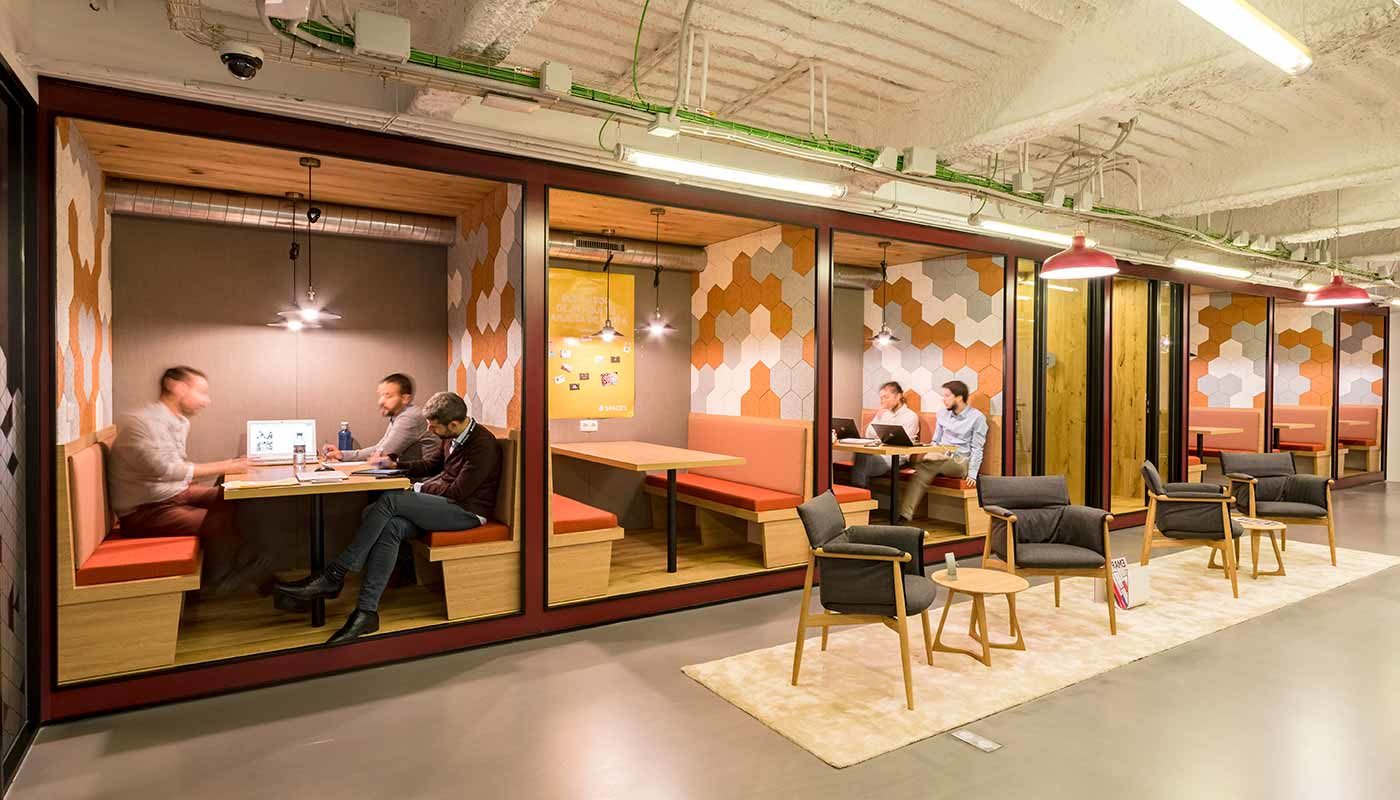Eduardo Salsamendi is involved in the industry of flexible workspace since 1990. That year, he founded his first business center Klammer located in Northern Spain.
In 2008, Eduardo Salsamendi founded the European Confederation of Business Centers Associations (EUROCBCA ), headquartered in Brussels. while being the president of the Spanish Worskpaces association ProWorkSpaces.
We talked with Eduardo about how the evolution of the flexible workspace industry, and especially how the coworking culture is now influencing the sector.
Hi Eduardo. Could you offer us an overview of how the flexible workspace industry is doing in Spain, as we speak?

Eduardo Salsamendi
Spain has a different workspaces ecosystem than the neighbor countries. We have a lot of smaller independents business centers that are representative of their owners’ own way of living. That said, the average size of the spaces kept steadily growing over the last 15 years. With an acceleration in the 24 months. The average size of our spaces in square meters has evolved from 600 to 900 m2 over the last five year. This figure might be misleading, though, due to the break down between the very big and very small spaces. If we have a look at cities, Madrid counts nowadays for more than 1/3 of the total flexible workspaces number in Spain, followed by Barcelona.
According to you, what are the main challenges traditional business centers are facing now?
The good news is that we are no more just speaking about money or space, but about the people’s needs. The flexible workspace industry now works on making people feel good while working, supporting them in the making of more efficient work. Technology changes the way we work. Users mentality changes too.
What kind of distinction would you make, today, between a coworking space and a business center?
To us, the distinction between coworking and business centers is something more and more of the past, as flexible workspace operators today embrace elements of both worlds. At ProWorkSpaces we now define a flexible workspace operator as someone offering a combination of space, services, technology, and community. And the “traditional” kind of paid services are permanent offices, virtual offices, and spaces sold by the hour or by the day (meeting rooms, training rooms, offices, workstations…). Everyone makes his own recipe based on these ingredients.
Coworking has brought more visibility to the flexible workspace industry.
Would you say that the rise of Coworking benefited the traditional flexible workspace industry, so far?
The irruption of coworking made a revolution of the flexible workspace industry possible. Traditionally, real state players were focused on space, business centers were focused on service – Space as a Service- and Coworking operators were focused on community. In the early days, one of coworking’s biggest challenge was profitability. However, coworking quickly pivoted and incorporated elements of the “traditional” business center, usually more profitable. Coworking has brought more visibility to the flexible workspace industry. It made flexible workspace cooler. We understood that we needed to work on communities of users. In addition, we learned that offering different environments across our spaces was an added value. Many operators include different kind of spaces and ambiances: open common spaces, more informal ones, different types of meeting rooms, workstations in an open space…
We will continue to work on the SaaE concept (Space as an experience).
Where do you see the industry going in the coming years?
The industry will continue to change and grow very fast in the coming years. We expect different kinds of workspaces looking for their specific customers. The people in the industry love putting labels on what is a business center, what is a coworking space… but users don’t care. They look for a workspace that solves their needs where they feel comfortable. We will continue to work on the SaaE concept (Space as an experience). For me, the best reward is when a lead comes for a tour and says: “Wow, I want to work from here”. On the other hand, corporations build teams for projects. They collaborate with freelancers. The new economy includes uncertainty. The flexible workspace industry is the perfect solution for this, with flexibility and immediacy. You can know what you need today. However, you are never sure about what you will need tomorrow. We have an enormous growth horizon ahead of us as, nowadays, we still only represent a tiny portion of the whole offices market.
The people in the industry love putting labels on what is a business center, what is a coworking space… but users don’t care at all.
Picture source : Spacesworks Madrid
Join Coworking Europe Conference for more insights, data and connections!


